Victoria Police delays give high-risk suspects 41 days grace period before firearm prohibition orders are served
No money, competing priorities: Victoria Police delays give high-risk suspects 41 days grace period before firearm prohibition orders are served.
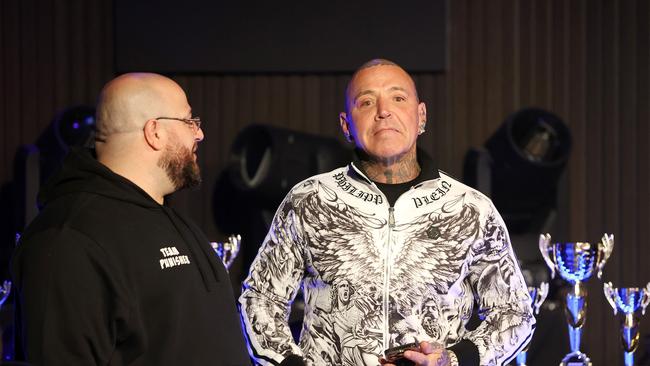
Dangerous 41-day delays in police slapping firearm prohibition orders on high-risk suspects are undermining Victoria’s anti-gun laws, with one man shooting another before he could be served with an order, and another assembling a collection of “firearms-related items”.
Victoria Police has been placed on notice by the Independent Broad-based Anti-corruption Commission over the delays, with the watchdog urging FPOs to be served on suspects as a “priority”.
The revelations are the latest problems uncovered by The Australian’s special investigation, Target on Guns, which is examining problems in firearms legislation and the 27-year failure to establish a national firearm register.
The firearm prohibition laws allow Victoria Police to launch snap raids on suspects without a warrant but do not come into force until they have been served. The bans on acquiring, possessing, carrying, or using any firearm or firearm-related item are taking an average of 41 days to be served after the order is made.
Target on Guns
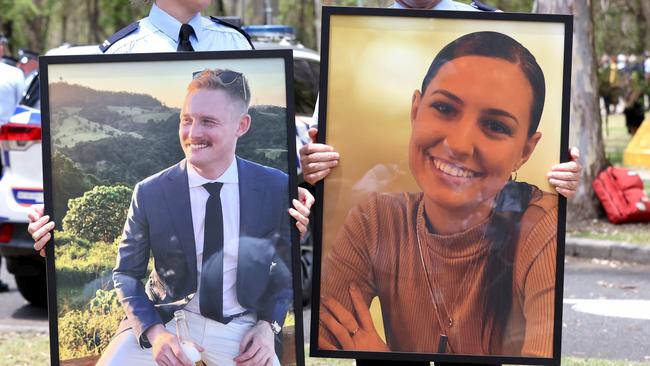
Extremists, crims, AVOs on guns register
A $250m national firearms register will have access to criminal records and family violence orders alongside details of guns and firearm licence holders.
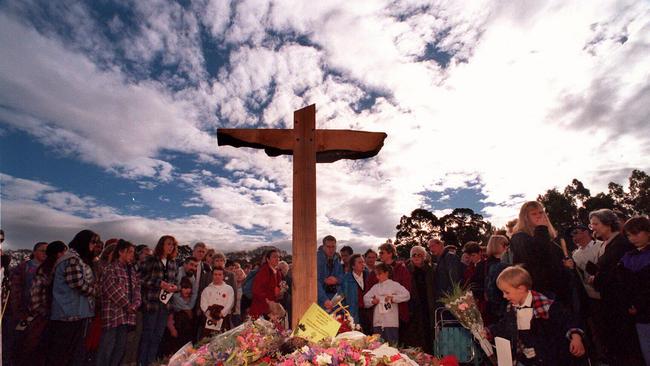
Firearms register win, as FBI nabs cop killers’ US contact
Twenty-seven years after it was first agreed following the Port Arthur massacre, Australia’s leaders sign a historic deal to introduce a national gun registry.
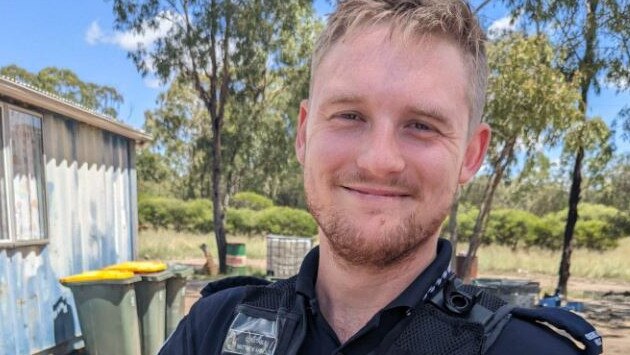
Nation’s leaders urged to do deal on gun register
Police and gun safety advocates urge premiers, PM to ‘show some fortitude’ on firearms ahead of the anniversary of the Wieambilla police murders.
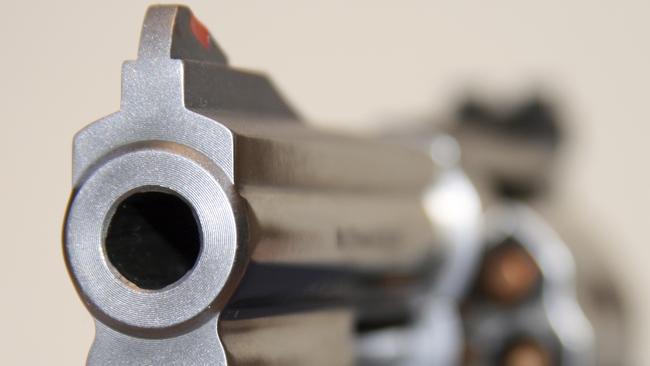
‘Red-flag cop-haters, sovereign citizens’ on firearm register
A national firearm register should include intelligence about licensed gun-owners who have been identified on social media as ‘police-haters’ or sovereign citizens.
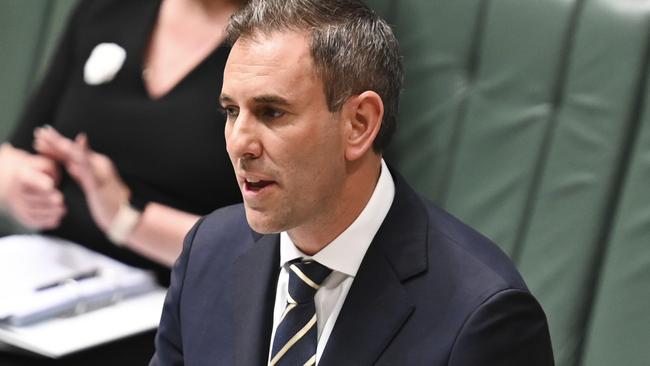
Fight over cash derails register
The national guns register has hit an 11th-hour roadblock with a blow-up between state and federal treasurers derailing plans to finalise a funding deal.
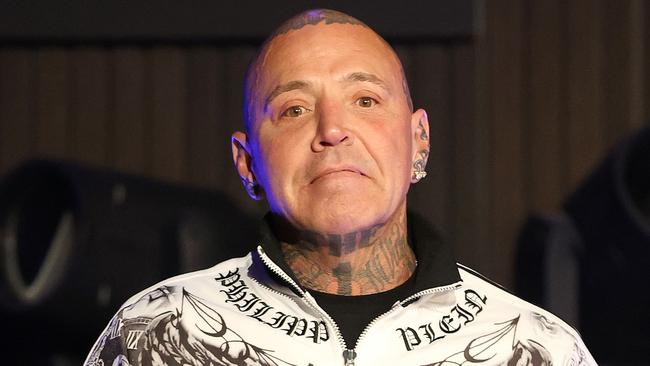
Delays give high-risk suspects 41-day start
No money, competing priorities: Victoria Police delays give high-risk suspects 41 days grace period before firearm prohibition orders are served.
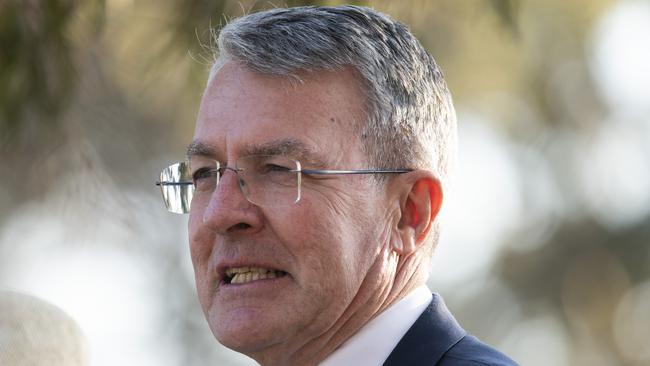
Firearms register ‘now within range’
Gun safety advocates say Australia’s state, territory, and federal governments have ‘never been closer’ to a deal on a national firearm register, 27 years after the Port Arthur massacre that first prompted calls for the database.
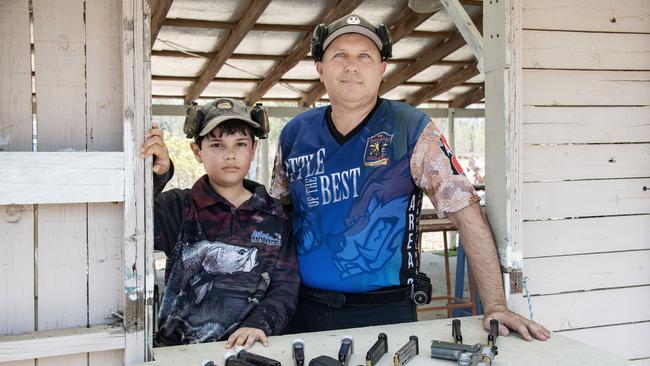
Young shooters aim for sporting success
Sport for some kids involves a ball or a racquet, but 12-year-old Quinn Coates-Marnane much prefers a pistol. The Cairns schoolboy is one of a growing number of children learning how to shoot competitively.
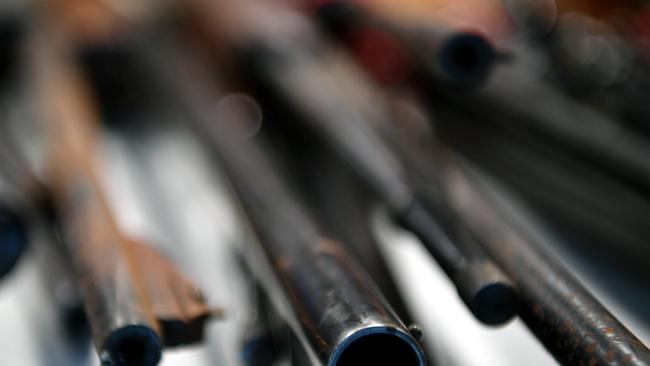
‘Ridiculous’: Police slam failure to act on guns register
An Australian-owned and operated company built New Zealand’s new national firearms database, prompting police advocates to ask why the same can’t be used domestically.

Victoria cries poor on guns, asks Canberra for help
Victoria has joined smaller jurisdictions asking Canberra for financial assistance to upgrade old state firearms registers to make them compatible with a real-time digital national gun database.

Aussie-made arms register controls guns abroad – why not here?
A low-cost simple-to-use system known as ArmsTracker is operational or being installed in countries across the globe. But its creators say it wouldn’t suit Australia because ‘they wouldn’t trust anything less than $2m’.

$30m slug to sign up to firearms registry
Smaller states and territories could be slugged with a bill of $30m each to join a national firearms register and are increasing pressure on the federal government to pay for the new digital guns database.
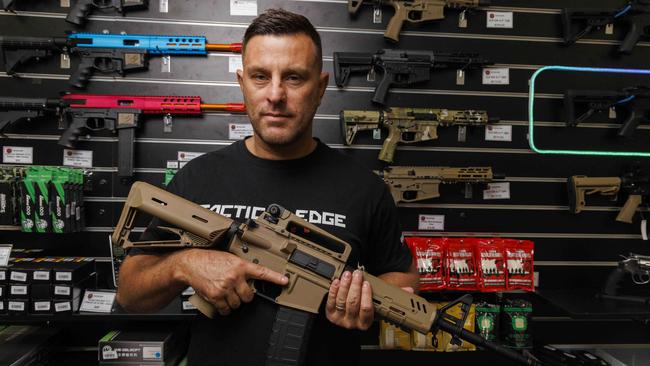
Pressure on state to ban replica ‘gel blasters’
Gun control advocates urge Queensland to follow the rest of Australia and ban gel blasters instead of labelling them toys.
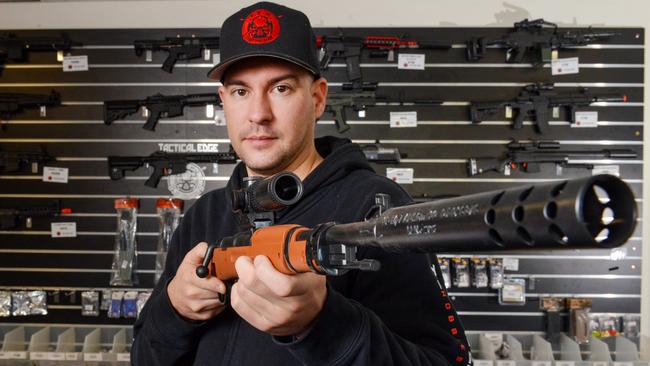
20 years’ jail for firing this ‘toy’? It’s ludicrous, blasts judge
In every other jurisdiction except Queensland you need a gun licence to wield this recreational weapon. Has the rest of the country got it wrong?
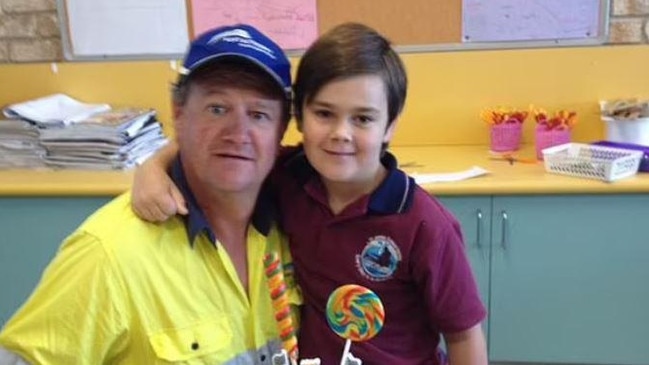
States resist health check for licences
Every state and territory except WA is resisting calls from coroners and advocates to introduce mandatory mental health checks before gun licences are granted.
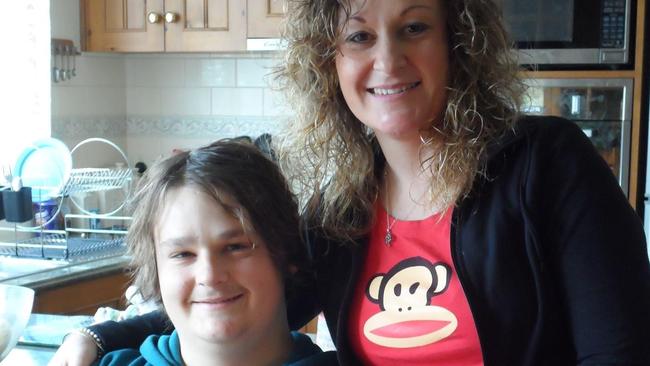
Grieving mother’s lament: Why did police let my son have a gun?
Just days after his 20th birthday, Robbie Lawrence unlocked his double-barrel 12-gauge shotgun from his father’s gun safe, drove to a remote bush track in regional Victoria, and killed himself.
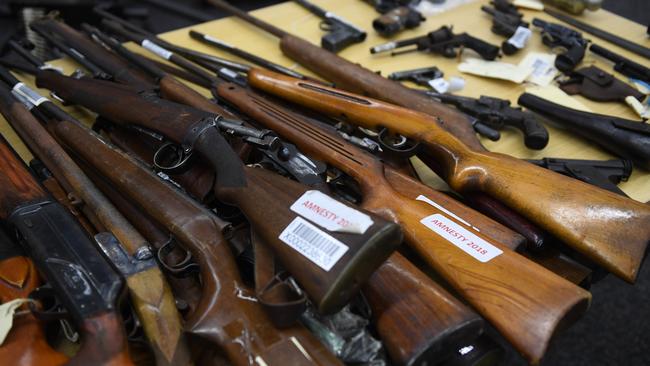
Legal guns near four million in Australia
The number of registered guns in Australia approaches four million for the first time, but ownership rates remain low, with a 48 per cent decline since the National Firearm Agreement in 1996.
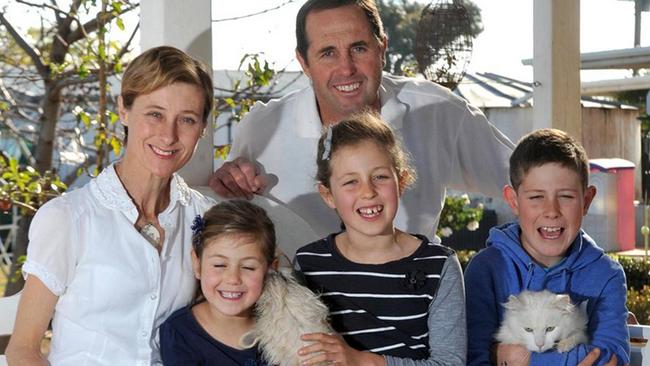
The forgotten victims of legal guns
Children, grandchildren and partners are the main victims of homicides carried out by licensed shooters, as lawful gun owners turn their registered weapons on those to whom they are closest.
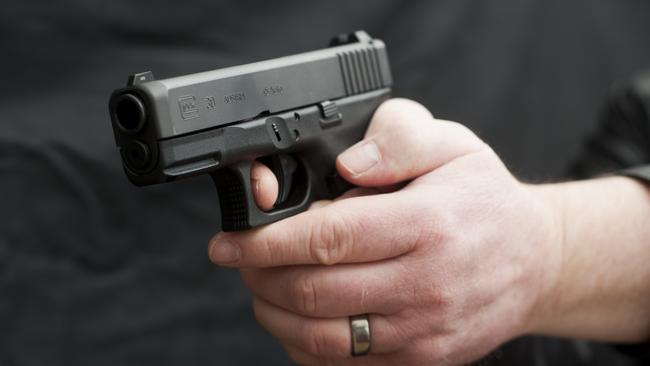
Coroners warn on shooting range suicides
Most of the nation’s shooting ranges are not required to install bulletproof barriers or lifesaving tethers for guns used by unlicensed shooters, despite coroner warnings after the suicides of at least 11 people.
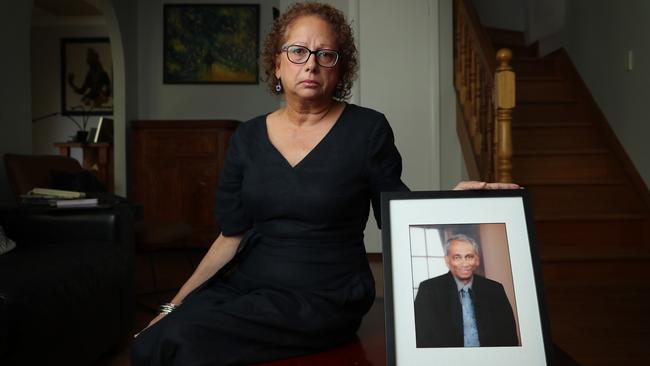
Shockwaves after daughter lures her dad to a violent death
It’s been 13 years since Di Bonarius’s sister shot their beloved father dead after stealing a gun from a pistol club, but the traumatic aftershocks of the violence are still shaking her family.
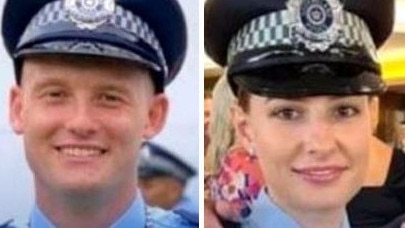
Inquest costs met for cops’ families
The families of the two murdered officers will have union-funded lawyers to represent them at the inquest, as one family expresses concern about some actions of Queensland police.

Christian extremist terror hit not enough to deliver gun register
Nearly a year after constables Matthew Arnold and Rachel McCrow and good Samaritan Alan Dare were gunned down at Wieambilla, bureaucratic inertia and a fight over funding has stalled the process.
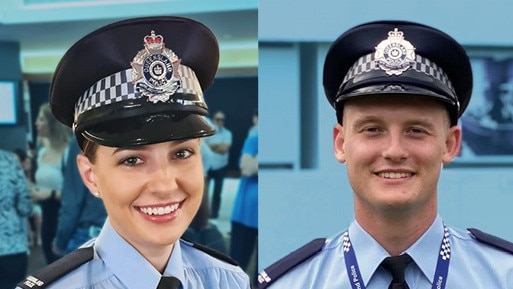
Young cop’s execution caught on body cam
Sniper’s lairs, battery-powered security cameras, and the cold-blooded execution of a young constable captured by her own body-worn camera: what really happened during the bloody Wieambilla ambush.
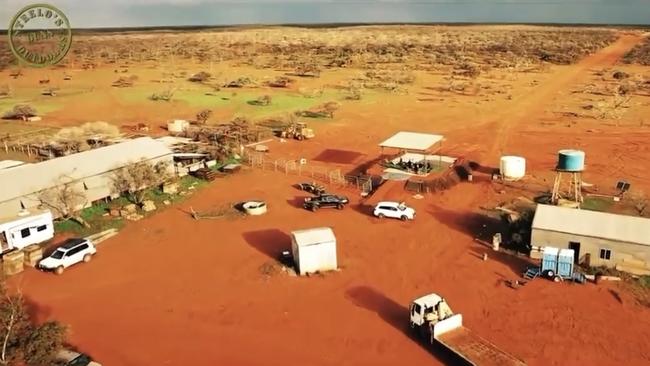
New laws were a killshot for Ella Valla station. Then Andrew Forrest swooped
For years, tourists would come to Shane Aylmore’s remote cattle property in WA, paying huge sums to fire enormous long-range weapons into the outback. In just one night, it was game over.
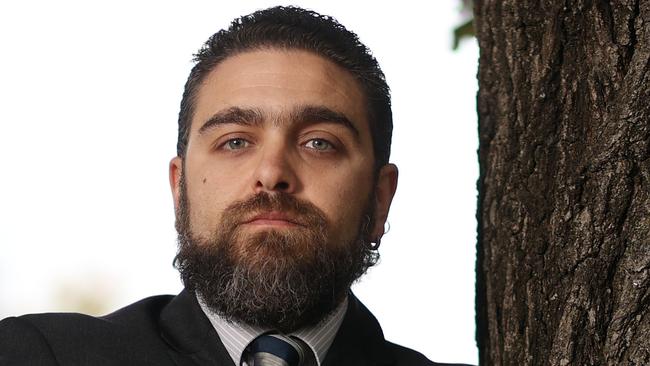
Gun, data reforms ‘would save cops’ lives’
‘Real time’ information would enable police to do a proper risk assessment before entering a property.
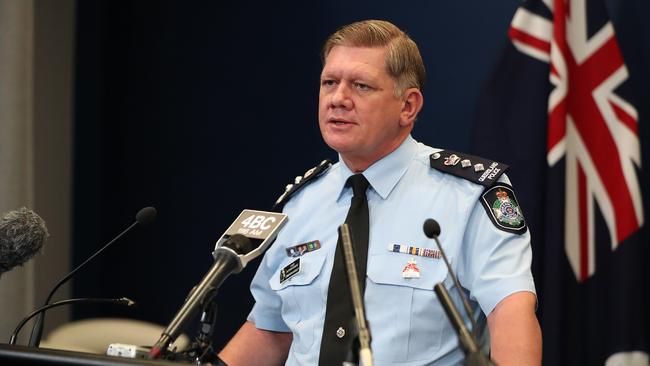
Outdated registry ‘is a threat to police’
Queensland’s firearms registry is still not fit-for-purpose and is putting police officers and the general public at risk, nearly three years after a warning from the auditor-general.
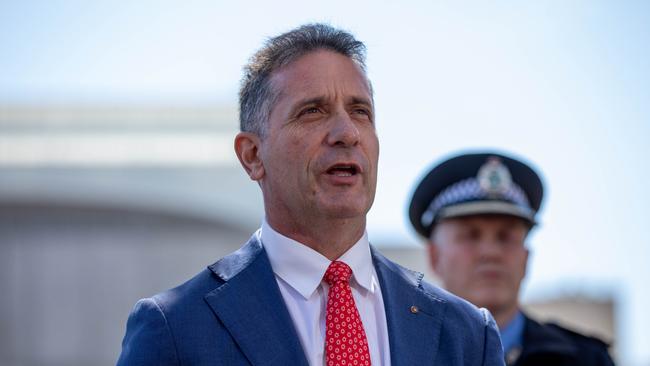
Up to 130,000 WA guns off the street
WA will become the first Australian jurisdiction to limit how many firearms a shooter can legally own, as the Labor government wants to slash the number of legal guns by about one-third.
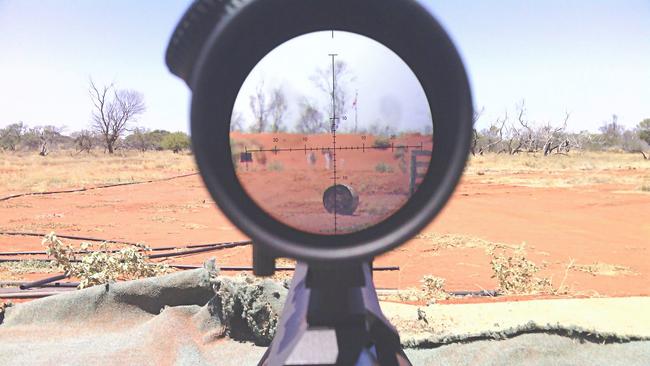
Federation fail: Patchwork of laws keep sniper rifles on our streets
High-powered .50 cal guns banned for being too dangerous by some states are legal over the border, as states and territories fail to harmonise gun laws or agree to a national gun registry.
The key findings from IBAC’s report reveal that between 2018 and 2020 there was an average 38-day delay between an FPO being made and served.
Victoria Police confirmed the average delay was now 41 days – falling from a high of 49 days in 2021, to 32 this year.
Two crimes committed during those delay periods included a man who shot another man over a drug dispute in regional Victoria, and a second case involving a man who could not be located for eight months after an FPO was made against him. When he was eventually located, he was found in possession of a number of “firearm-related items”.
More than 2100 FPOs have been served on high-risk suspects including bikies and gangsters since the laws were introduced. These include Toby Mitchell, a former Bandido-turned Mongols member; former Rebels president Colin “the Snake’’ Websdale; Peter “Skitzo’’ Hewat, a senior member of the Hells Angels; and former national president of the Hells Angels Luke Moloney.
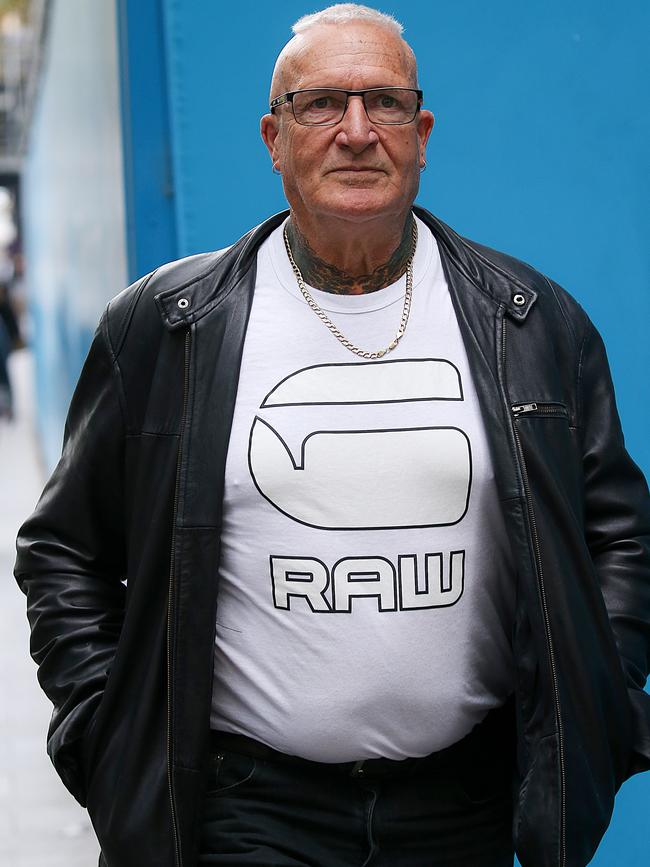
The delays were identified by IBAC in a review tabled in the Victorian parliament this week, which said: “IBAC is of the view that, once an FPO is made, its service must be given priority. This is because an FPO is made on the basis of an affirmative conclusion by the decision-maker that there is a risk that the FPO subject will come into possession of a firearm in circumstances where the firearm may be used to endanger the peace and safety of the public.
“Although there is no legislative time frame as to when an FPO must be served, given that the basis for making an FPO is to mitigate or control risk to public safety, it is reasonable to expect that service of an FPO would occur as soon as possible.’’
IBAC also noted it took an average of 20 days between police applying for an FPO and it being made. Victoria Police said that figure was now an average of 21 days, meaning it takes an average of two months, or 62 days, from the time an application is made until it is served.
In the worst delay revealed by IBAC, a suspect was not served for 579 days after he relocated to Queensland, and difficulties were encountered in finding a special constable to serve him.
Police said delays were triggered by suspects going on the run, fleeing interstate, and being locked up in jail. Limited resources and “competing priorities’’ as well as complex planning also contributed to delays.
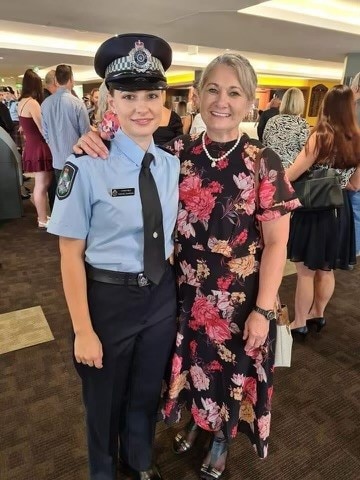
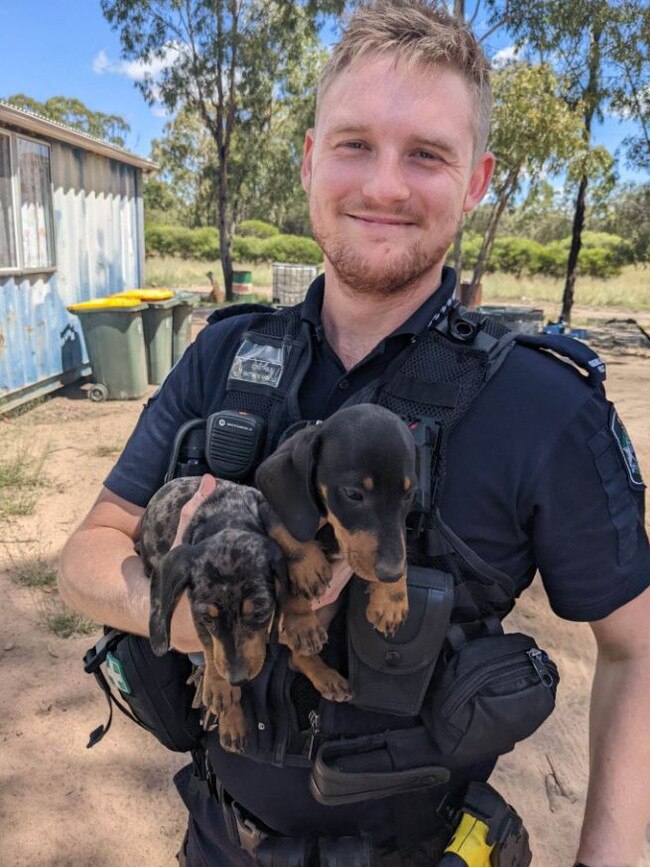
IBAC reported that Victoria Police had said it could not afford to upgrade its Firearm Prohibition Order Registry. “Victoria Police advise IT improvements are needed to build into the current system but they have not been proceeded with due to estimated costs being beyond budgetary allowance,’’ the report states.
“IBAC encourages Victoria Police to ensure that the FPO Registry is appropriately resourced including to allow for necessary IT enhancements or upgrades to the FPO Registry database in order to mitigate risks of error and incomplete data and to provide for efficiencies within the FPO Registry.’’
The Firearm Prohibition Order Registry is not part of Victoria Police’s firearm register, which is also plagued by ageing technology and a lack of funds.
The Australian revealed last week that Victoria had joined Tasmania, South Australia, the ACT and the Northern Territory in demanding Canberra fund updates of their firearm registries in order to make them compatible with a national register.
The funding stoush stalled the rollout of a national firearm registry, first agreed after the massacre of 35 people by a lone gunman in Tasmania in 1996, and the subject of a renewed push after two police officers and a neighbour were killed at Wieambilla in Queensland in December last year.
One of the Wieambilla shooters was a licensed firearm owner with guns registered in both NSW and Queensland.
A funding framework for the national register, which has been costed at $200m with a $30m plug-in’ cost for states and territories, could be agreed to by national cabinet as early as next week.



To join the conversation, please log in. Don't have an account? Register
Join the conversation, you are commenting as Logout